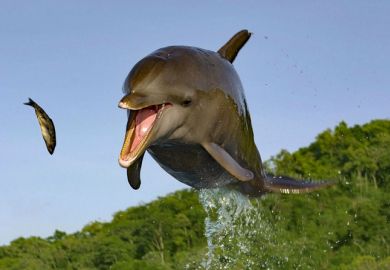There is an interesting generalisation in natural history, of which the discovery of a kind of miniature fossil human on Flores, Indonesia, is the latest demonstration. If isolated on islands, large animals tend to evolve dwarf varieties, while smaller animals produce giants. The causes of the phenomenon are not clear as it occurs in islands both big (New Zealand) and small. Among the most fascinating examples of island dwarfism are the pygmy elephants and pig-sized hippopotami that evolved in Pleistocene times on islands from the Mediterranean to the Far East. They were first discovered 100 years ago, not by teams of professional palaeontologists from the great universities or museums, but by a young woman working more or less alone.
Karolyn Shindler's biography of Dorothea Bate (1878-1951) necessarily involves several different stories. Bate was a woman with a strong will, adventurous spirit, great personal toughness and intelligence, and a persuasive, often imperious, manner, who pursued a passion for natural history in a world (London and the Natural History Museum) where all the jobs were held by men. She had a privileged upbringing but, as the younger daughter, was expected to look after her parents, even after they in effect disinherited her to put their resources behind her brother. This should therefore be a conventional tale of thwarted expectations and exclusion.
But those were changing times, and Bate seems to have found only encouragement from that man's world. Although she had no formal training, at 22 her first scientific paper (on bones found in a cave in the Wye valley) was published in Geological Magazine . She probably enjoyed more support than Beatrix Potter, with her researches on fungi at the Natural History Museum and Kew a decade earlier. Through family connections, and with modest funding from the Royal Society, Bate travelled widely in the Mediterranean looking for fossils. Custom required a companion, but she basically worked alone, with local guides. Almost everyone helped her, even when she stubbornly tried to circumvent the Cretan requirement for permits to collect and export fossils.
Fossils on islands are found mostly in coastal caves; like most, hers were inaccessible, filthy and occupied by bats and goats. But she could put up with great hardship and, although often ill, she discovered inter alia the pygmy elephant and hippo species that are securely associated with her name. She became an expert on fossil mammals and a skilled collector of living insect, bird and mammal specimens. One of the reasons for her acceptance and sponsorship by the Natural History Museum was doubtless that she provided them with so many invaluable specimens. During the First World War, she finally became a paid junior staff member and was accepted in every sense as a "professional" scientist.
Discovering Dorothea is an interesting read for both its social and scientific histories, though it necessarily concentrates on Bate's travels and her fossil collecting. Bate's personal letters and photographs are all gone. Only her travel diaries remain, so Shindler can only describe her life through what she actually did. It would be fascinating to know more of Bate's views on her family, her conversion to Christian Science, her remarkably unstuffy colleagues at the Natural History Museum, marriage, the growing number of other women professionals and the huge changes that occurred in British society and science in the first half of the 20th century. Nonetheless, Discovering Dorothea celebrates a remarkable woman and, despite the paucity of personal insights, hints, if frustratingly, at new truths behind some old stereotypes.
Keith Thomson is emeritus professor of natural history, Oxford University.
Discovering Dorothea: The Life of the Pioneering Fossil-Hunter Dorothea Bate
Author - Karolyn Shindler
Publisher - HarperCollins
Pages - 390
Price - £25.00
ISBN - 0 00 257138 2
Register to continue
Why register?
- Registration is free and only takes a moment
- Once registered, you can read 3 articles a month
- Sign up for our newsletter
Subscribe
Or subscribe for unlimited access to:
- Unlimited access to news, views, insights & reviews
- Digital editions
- Digital access to THE’s university and college rankings analysis
Already registered or a current subscriber? Login



